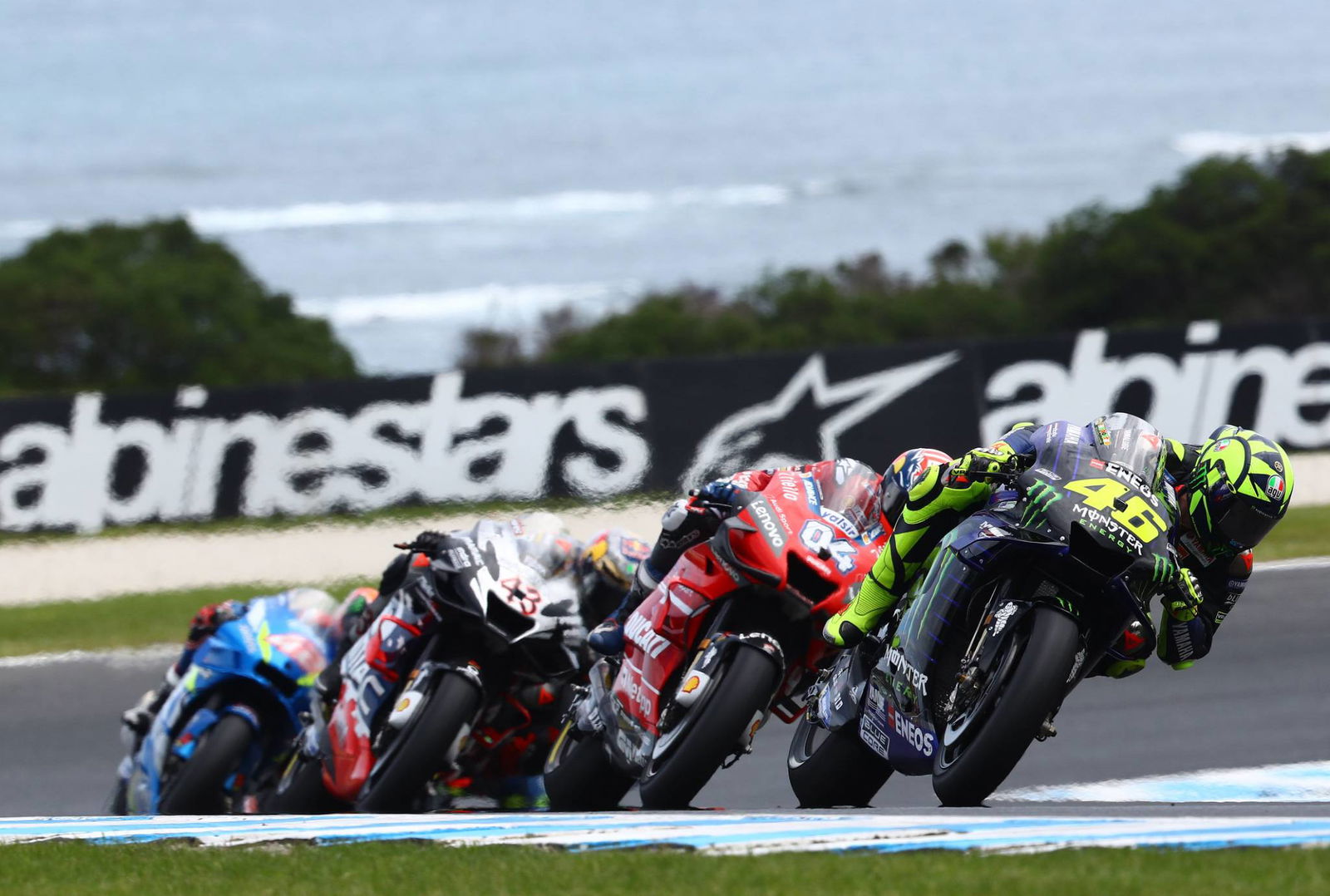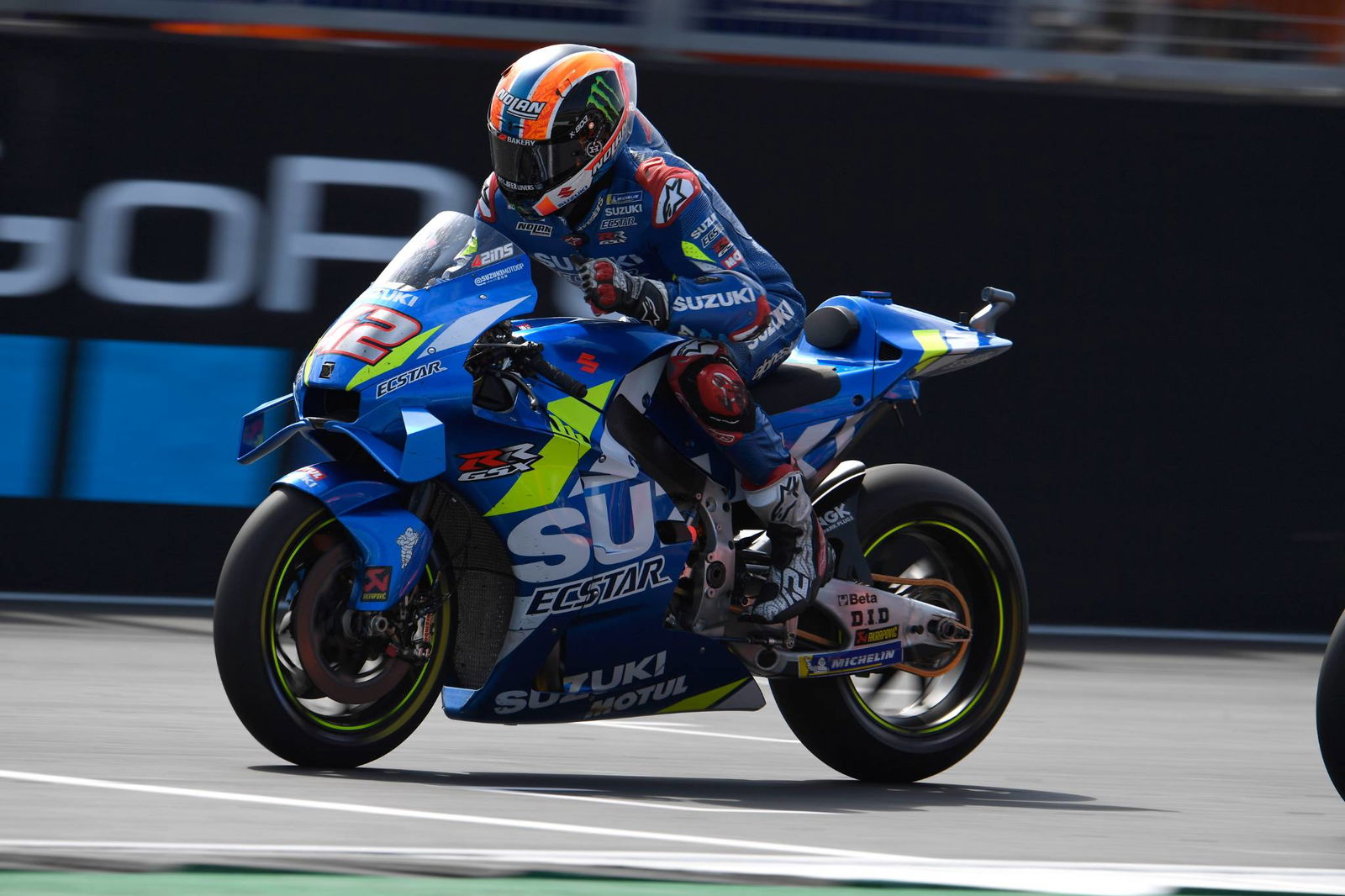Best of 2010s: The defining MotoGP moments of the decade
With a list so subjective to opinion it is fair to state this isn’t a definitive record of the decade but a snapshot of the times which shaped the sport and its stars going into the next decade and beyond. These moments act as the essential chapters in the history of MotoGP in the 2010s.
Miller’s shock win at Assen in 2016
Heading into the 2016 Dutch TT small marks of history were already being made with it being the first race day held on a Sunday, instead of the race’s traditional Saturday slot, while it marked the 250th race in the MotoGP era.

With a list so subjective to opinion it is fair to state this isn’t a definitive record of the decade but a snapshot of the times which shaped the sport and its stars going into the next decade and beyond. These moments act as the essential chapters in the history of MotoGP in the 2010s.
Miller’s shock win at Assen in 2016
Heading into the 2016 Dutch TT small marks of history were already being made with it being the first race day held on a Sunday, instead of the race’s traditional Saturday slot, while it marked the 250th race in the MotoGP era.
But come that fateful Sunday with heavy rain showers circling Assen, nobody would have predicted Jack Miller would end the day on the top step of the rostrum. After a relatively ‘normal’ start the rain intensified with Yonny Hernandez gambling into the lead before crashing as riders began to call for the red flag with conditions becoming unsafe to continue.
With the initial race halted after 14 laps due to the weather, the race restarted with a 12-lap sprint which saw Valentino Rossi lead early on before crashing out in the slippery conditions. That handed the advantage to Marc Marquez, but he could do little to stop Miller’s charge as the Australian moved into first place with nine laps to go.
In an anxious end of the race for his Marc VDS squad Miller held on to claim a stunning victory by almost two seconds from Marquez.
Miller became the first Independent teams’ rider to win in MotoGP in almost 10 years following Toni Elias’s dramatic 0.002s victory ahead of Rossi on the Fortuna Honda at the 2006 Portuguese round at Estoril.
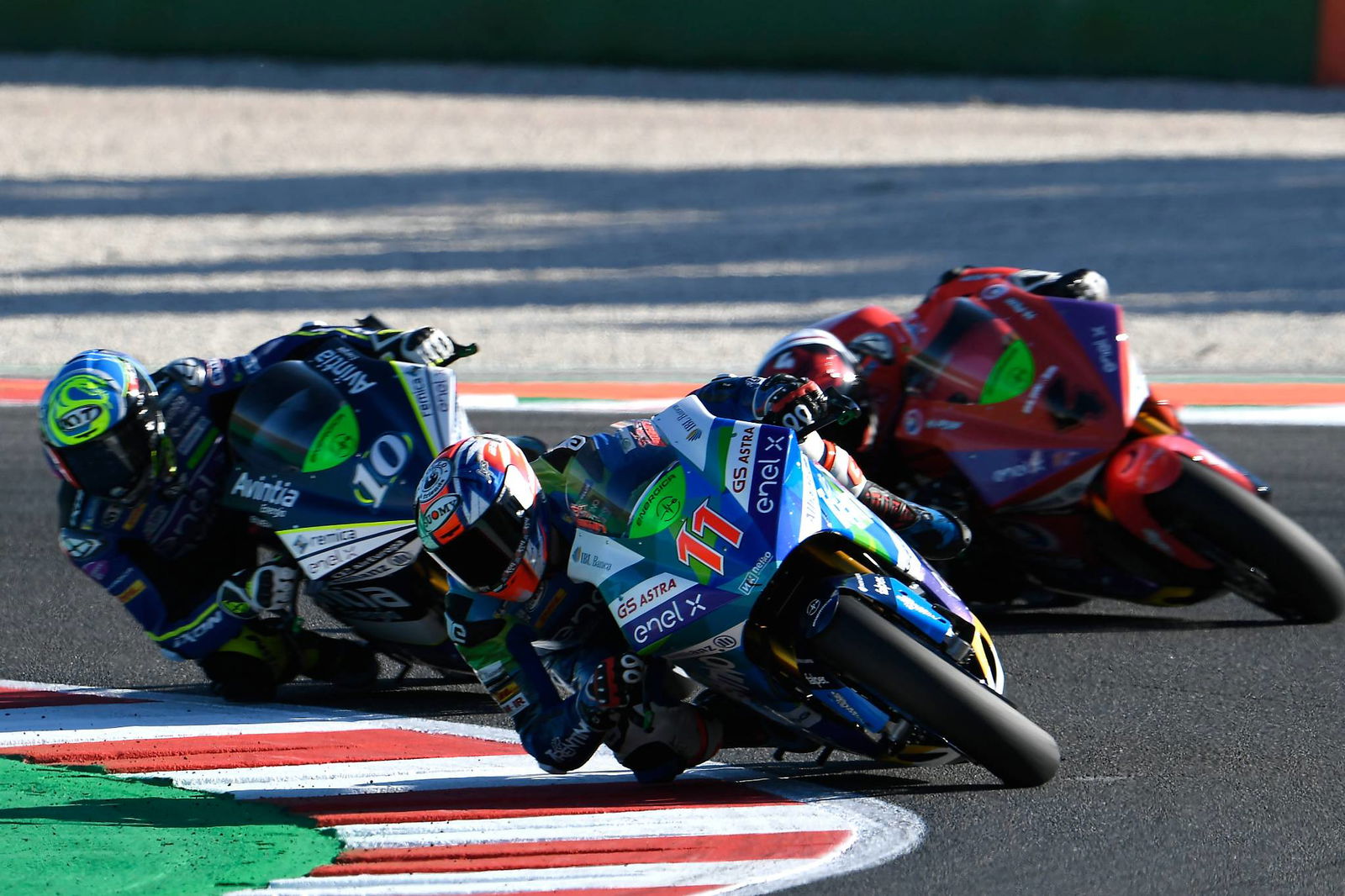
The arrival of MotoE
Arguably it has been 35 years since the last ‘new’ Grand Prix class was formed, ignoring the 500cc to MotoGP, 250cc to Moto2 and 125cc to Moto3 transitions, but in the final year of the 2010s the first season of electric racing arrived with MotoE.
Granted, a single-make series doesn’t qualify for competitive manufacturer prototype racing, which is partly why its official title is the FIM Enel MotoE World Cup, but the introduction of electric motorcycle racing is one of the biggest changes in the history of the sport.
Following in the footsteps of the four-wheel equivalent, the FIA Formula E series which launched in 2014, the Energica Motor Company’s Ego Corsa is a two-wheeled racing machine unfamiliar to what has gone before but it could come to redefine racing if the future proves to be all-electric.
With average lap times currently a couple of seconds off the Moto3 equivalent, the heavy battery-loaded bikes with instantaneous acceleration require a new style of riding which has seen Matteo Ferrari make history as the inaugural series champion.
But starting out fresh was never going to be easy for MotoE and the unexpected and almost disastrous fire at Jerez during testing threw the series into jeopardy before the first race. The fire destroyed the entire fleet of Energica racing bikes and equipment which meant the first-ever campaign had to be postponed a few months to give the Italian manufacturer time to investigate the fire and construct a new grid of bikes.
After the enforced delay history was made in early July 2019 when the first-ever MotoE race was held at Sachsenring, won from pole position by Niki Tuuli for Ajo MotoE.
With races lasting no longer than 15 minutes – partly down to the charge range but also a smart decision to keep races exciting – the reception has been positive after initial scepticism. With the technology set to improve and progress there will be rapid gains in speeds, lap times and racing will develop at a faster rate than any other championship. It means MotoE could have a very different picture to it across the next decade.
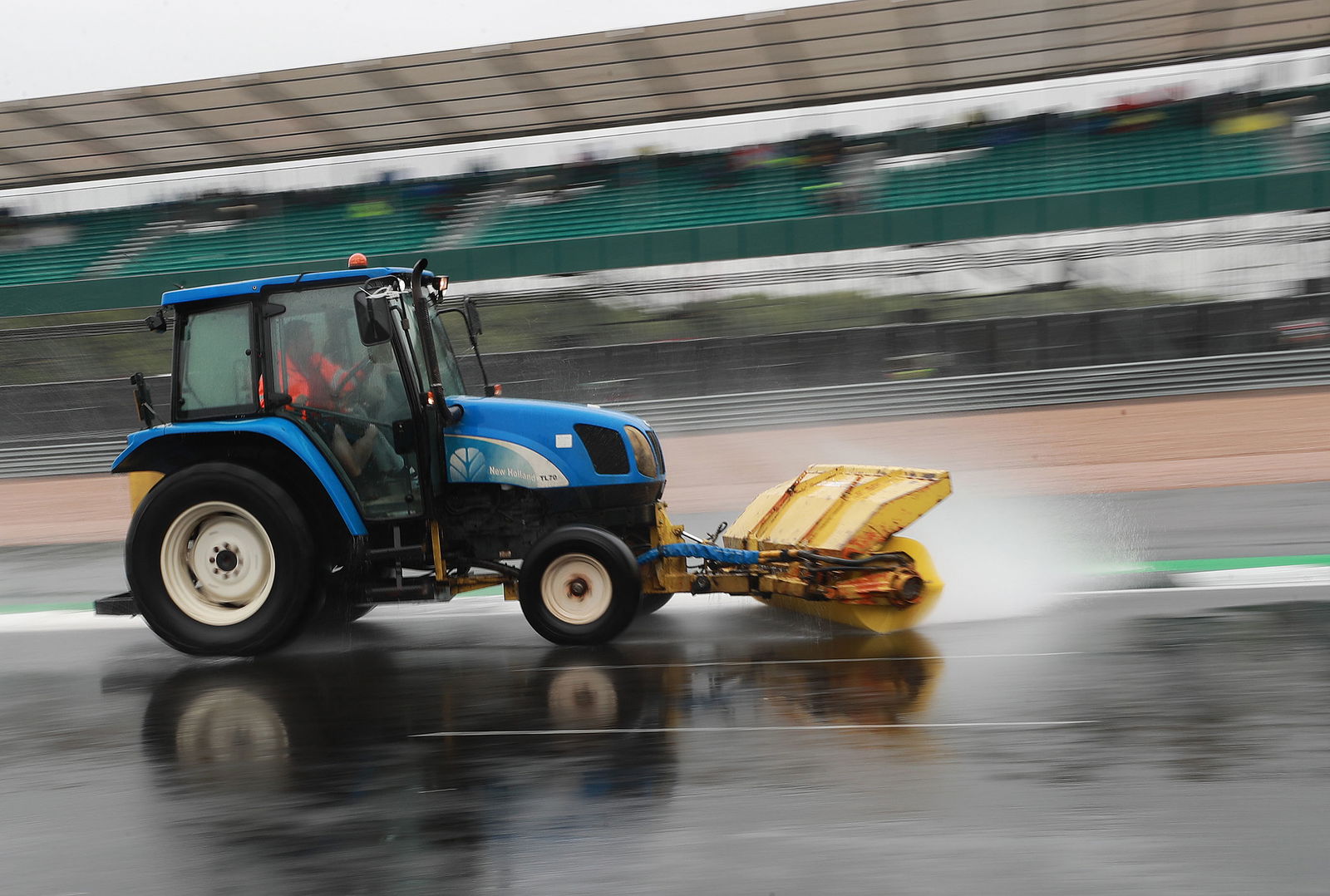
The Silverstone washout which cancelled the 2018 British MotoGP
Another event hit by heavy rain but this time it is remembered for all the wrong reasons as the entire race programme was cancelled due to unsafe track conditions in the wet at Silverstone.
Following a resurfacing to the British track earlier in 2018, it became clear rain was unable to drain off the circuit surface sufficiently which created deep standing water on the track – a problem which played a role in Tito Rabat suffering a horrific leg injury when he was hit by Franco Morbidelli’s Honda in the Stowe gravel trap after both riders crashed due to aquaplaning off.
Despite 11th-hour repair work to Silverstone’s track heavy rain throughout Sunday saw all action delayed before each race was cancelled due to unsafe conditions. It was the first time a GP race had to be cancelled due to conditions since the 1980 Austrian round when snow hit the Salzburgring.
An entire Silverstone circuit resurfacing followed before MotoGP returned a year later – ironically in hot and sunny conditions – with the episode now acting as a stern warning to all circuits to avoid the same mistakes in the future.
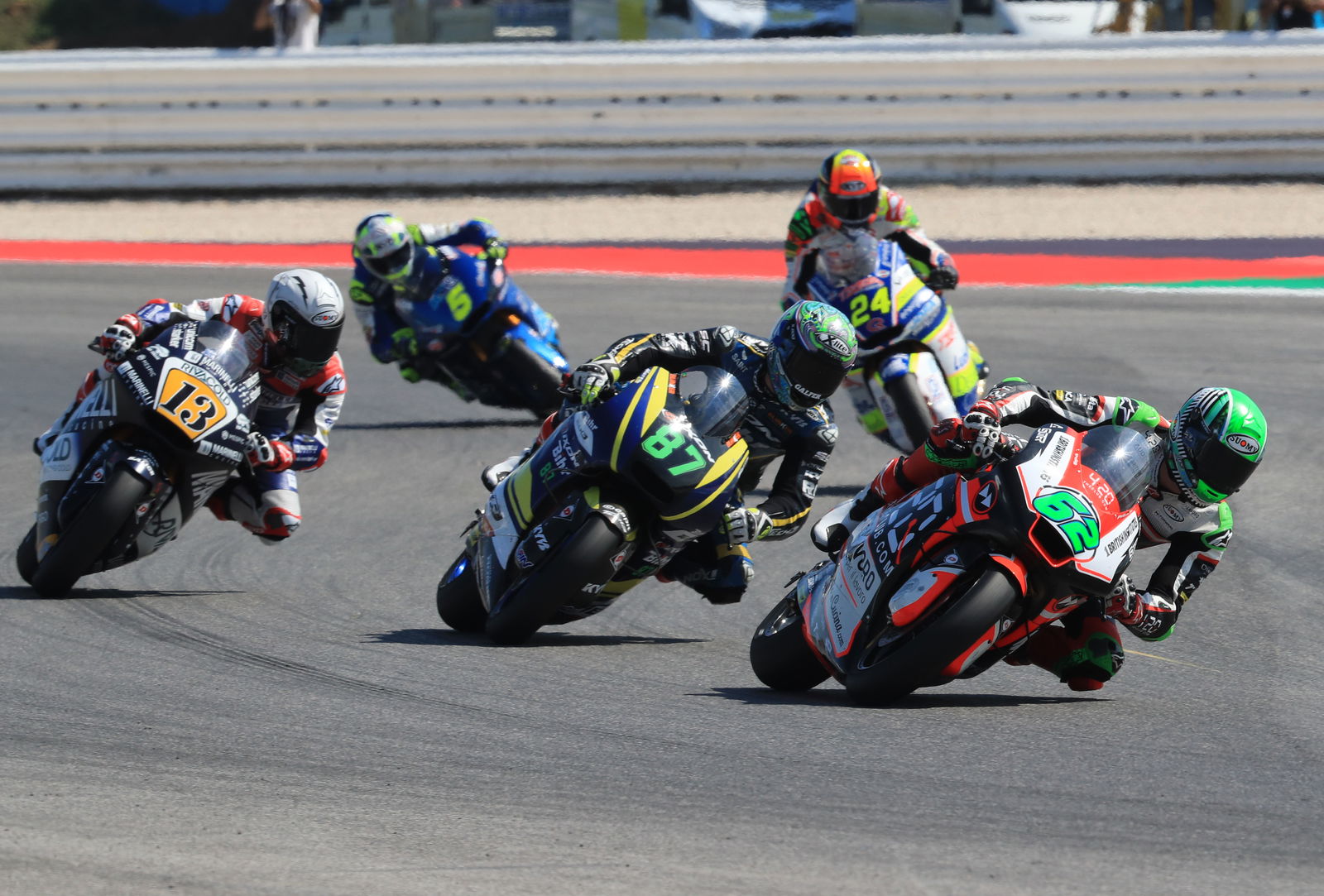
Fenati’s brake grab uproar and his comeback
Already known for his hot-headed temperament, Romano Fenati rocketed into worldwide infamy when he grabbed Stefano Manzi’s brake lever while battling on track during the 2018 San Marino Moto2 race at Misano.
The paddock erupted at the unbelievable footage of the Italian rider leaning over to his rival at around 140mph and the fallout was monumental. Fenati was sacked by his Snipers team, sacked by his future team – the irony being Forward MV Agusta were the team Manzi was competing for during the incident – before being banned by the FIM for the rest of the season. Fenati announced he would retire from racing with no team likely to take him on given his record as he also lost support from sponsors.
But, incredibly, after a few months out of the spotlight Fenati’s name appeared on the 2019 Moto3 entry list with Snipers. With some calling for the Italian rider to be banned for life at the time of the incident, Fenati made his racing comeback under six months after Misano – going on to win in Austria later in the season.
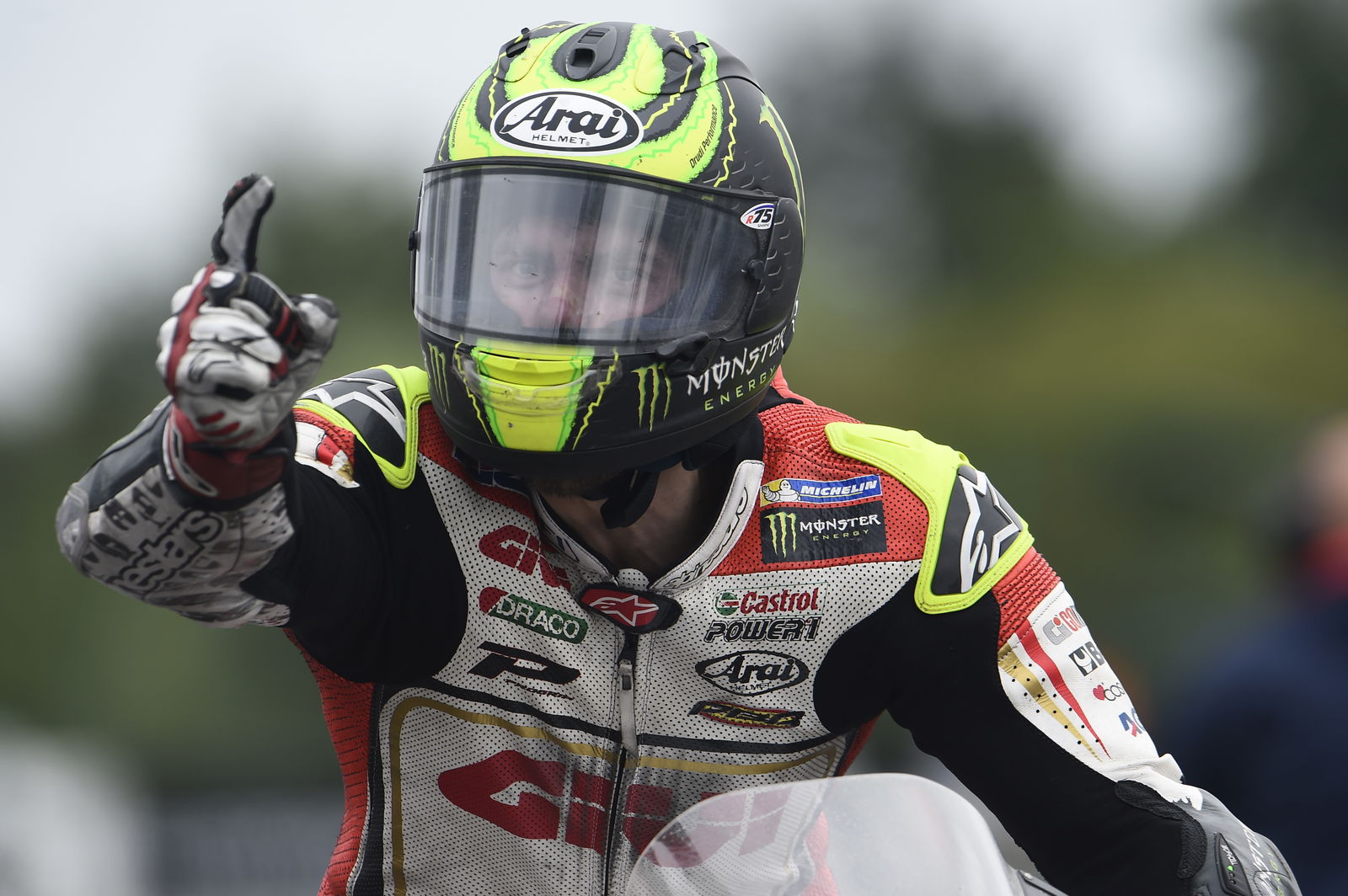
Crutchlow becomes the first British premier class winner since Sheene
Few major motorsport nations have suffered a win drought as long as Great Britain in the top class of MotoGP. From dominating the sport across the 1950s and 1960s thanks to trailblazers Mike Hailwood, John Surtees, Phil Read and Geoff Duke the country’s last all-time great was Barry Sheene with his final premier class win coming at the 1981 Swedish Grand Prix.
A 35-year gap followed without a single British winner in the top category until Cal Crutchlow delivered spectacularly in a rain-hit Czech Republic Grand Prix at Brno in 2016. Bolting from 10th on the starting grid, Crutchlow took the lead with seven laps to go which began an excruciating finale to find out if he could deliver where many of his fellow countryman had come so close over the past three decades.
As the cliché about buses goes, on the same day as Crutchlow’s historic triumph at Brno John McPhee became the first Scotsman to win a motorcycle GP since 1962 with his maiden Moto3 win.
The second half of the 2010s saw a great deal of British success (at least in relative terms) in Grand Prix racing with Danny Kent winning the 2015 Moto3 world title – becoming the first world champion in GPs since Sheene in 1977.
With Crutchlow, McPhee and Kent plus Scott Redding, Bradley Smith and Sam Lowes all winning races across various GP classes it has been a decade to remember for the riders from the British Isles.
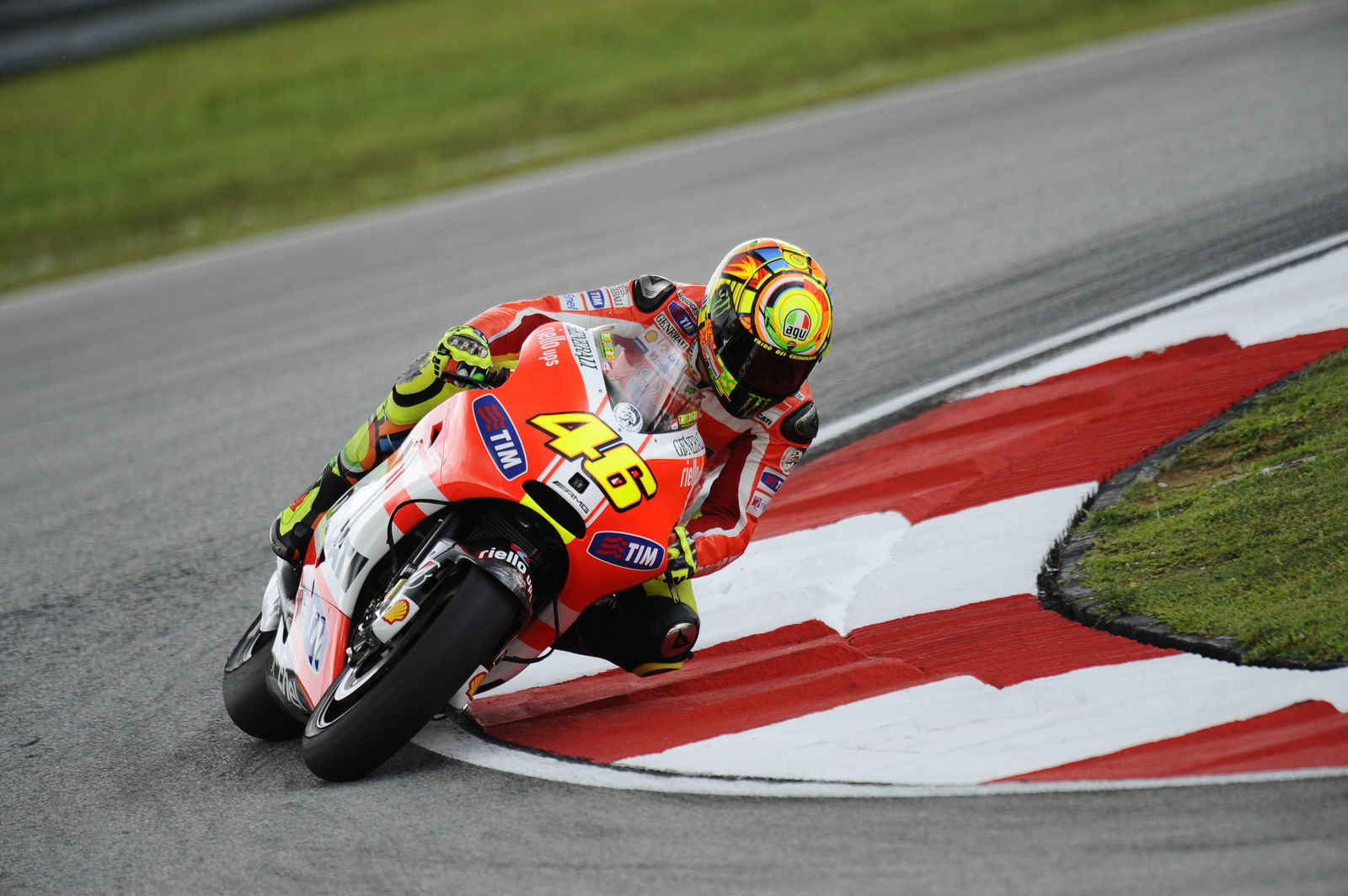
Rossi’s winless stint at Ducati before returning to Yamaha
Given the almost unparalleled success Valentino Rossi enjoyed in the previous decade, few would have predicted how his 2010s would have unfolded.
After breaking his leg during 2010 and engaging in a fierce team-mate rivalry with Jorge Lorenzo, Rossi made an ill-fated switch to Ducati in 2011 and a two-year stint which never came to fruition due to poor performing machinery while he struggled to find a comfortable front-end feeling.
During the 2012 summer break and 27 races into his Ducati career, Rossi announced he would return to Yamaha for 2013. The Italian’s best results for Ducati remained a pair of second places at Le Mans and Misano which both came in 2012 leaving the Italian dream with a victory to celebrate.
After quickly rediscovering his front-running pace with Yamaha, which resulted in second place at the 2013 opener in Qatar, Rossi had to wait until Assen that year to return to winning ways. While Rossi wasn’t completely in the title picture during his comeback campaign at Yamaha, he was fully in the frame for the next three years including the unforgettable 2015 season – more on that later.
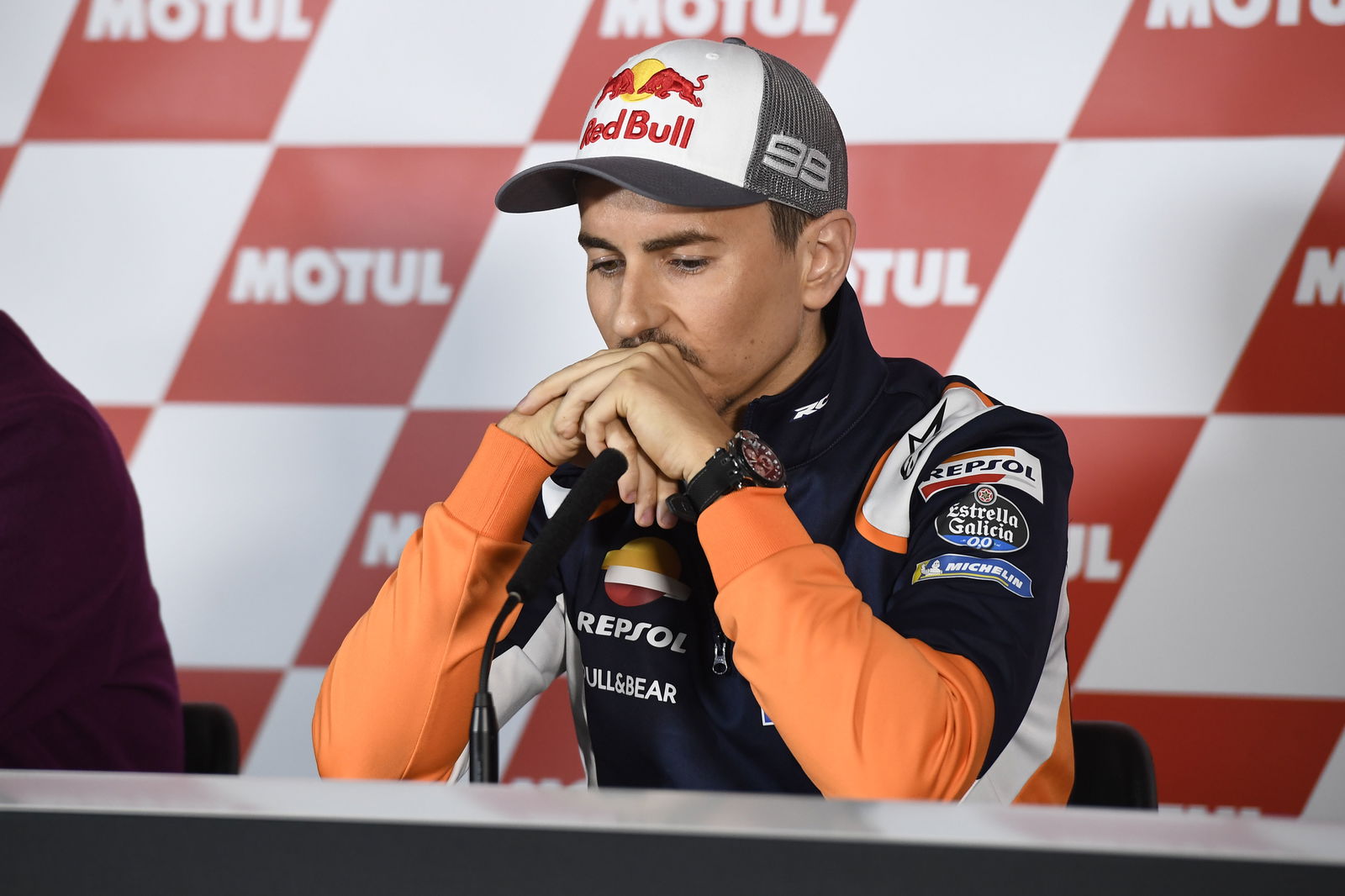
Lorenzo’s nightmare Honda season ends in retirement
Another rider with a disastrous career move in the 2010s is Jorge Lorenzo. After being forced out at Ducati despite finding winning breakthroughs, Lorenzo became part of the ‘dream team’ at Repsol Honda alongside defending champion Marc Marquez.
High expectations were placed on Lorenzo but a series of nasty injuries coupled with a Honda refusing to bend to the Spaniard’s will and riding style meant the dream quickly became a nightmare in 2019.
While out of action with fractured vertebrae, Lorenzo was linked to a move back to Ducati but the rumours were eventually shot down by the Italian manufacturer. After assessing what he felt was the best step in his life the five-time world champion announced a shock retirement from racing at the season finale in Valencia.
An outpouring of tributes duly followed for a key figure in MotoGP’s history over the past decade, while the 11th-hour scrambling to find Lorenzo’s replacement at Repsol Honda resulted in Marquez’s brother and Moto2 world champion Alex Marquez gaining an unexpected promotion.
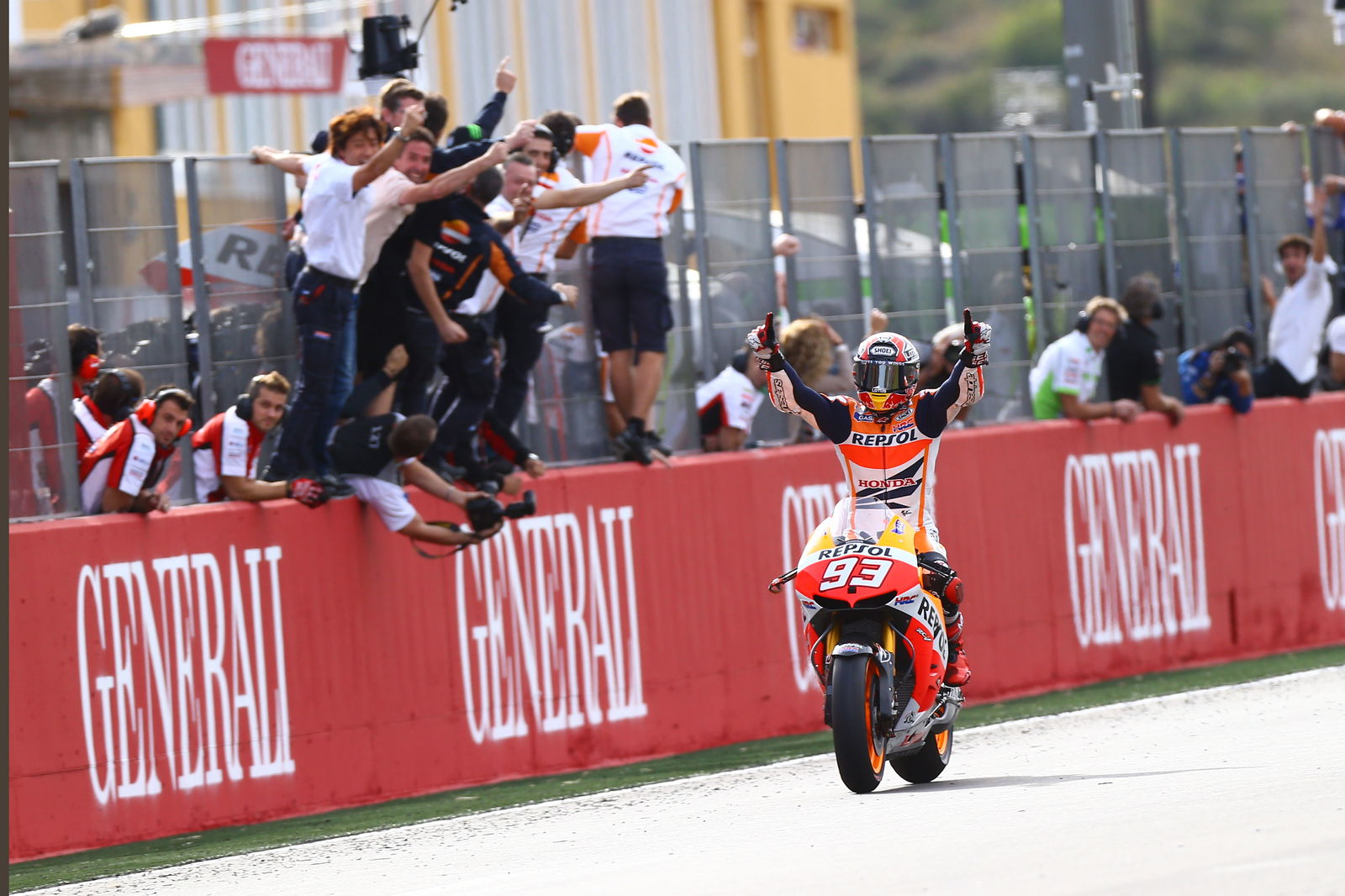
Marquez’s rookie MotoGP world title triumph in 2013
Marc Marquez rewrote the MotoGP record book in 2013 when he became the first rookie to win the premier class title since Kenny Roberts back in 1978.
Amongst his historic feats Marquez became the youngest winner of the MotoGP world championship, the youngest winner of a MotoGP race, the rookie with the most wins ever (six in 2013) and the first rookie to win four consecutive MotoGP races.
While the statistics point to a dominant campaign, in truth Marquez was never completely comfortable against the likes of Jorge Lorenzo, Valentino Rossi and Dani Pedrosa.
A 43-point lead over nearest rival Lorenzo with three rounds to go ensured the title became Marquez’s to lose and he came so close to doing just that when he was disqualified from the Australian Grand Prix, for failing to complete a mandatory pit stop within the correct laps, before finishing second to Lorenzo in Japan to see the gap shrink to 13 points for the Valencia finale.
But Marquez showed a maturity beyond his years by settling for third place knowing it was enough to seal the title regardless of Lorenzo’s victory at Circuit Ricardo Tormo.
The Spaniard’s stunning introduction in the premier class, not to mention what has followed since, has changed the face of racing in MotoGP.
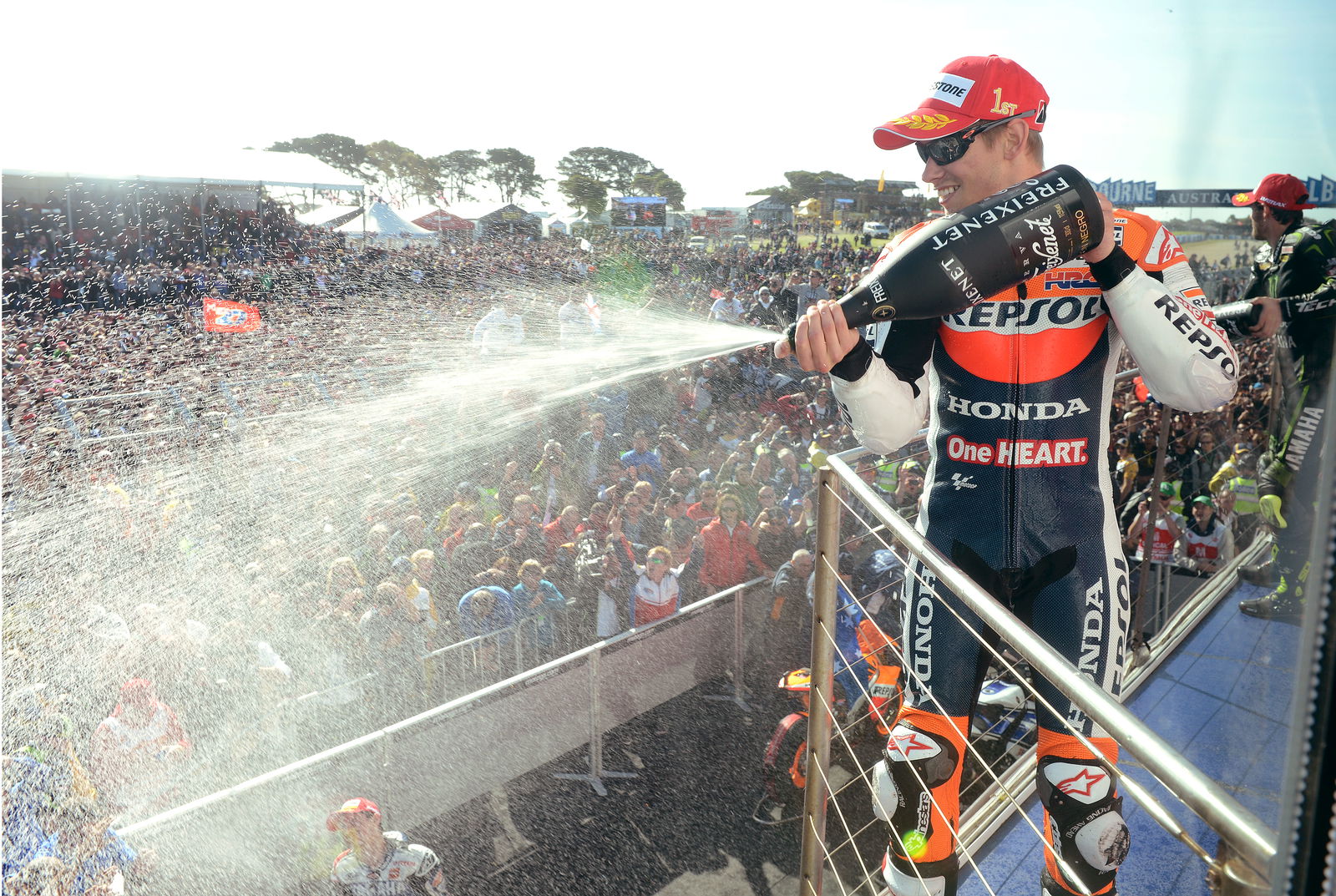
Stoner calls time on his career as champion
Casey Stoner may have only competed in this decade for the first three years but his mark on MotoGP hasn’t diminished as a two-time world champion who retired from racing aged 27.
After dominating to the 2011 MotoGP crown with Honda, Stoner’s love for the sport quickly diminished due to the political and team conflicts as he didn’t support the direction the sport was taking while he also had a young family that he was having to spend more and more time away from.
But nobody would have predicted the Australian rider to announce his retirement in May 2012 at the French round with his decision sending shockwaves across the sporting world.
Stoner was denied a final title fight in 2012 when he crashed heavily during qualifying at Indianapolis and suffered torn ligaments in his ankle. Incredibly Stoner still raced that weekend and finished in fourth place but required surgery on his ankle which saw him miss the following three rounds to curtail his world championship hopes before he bid farewell.
The two-time MotoGP world champion has remained a presence within the sport having been test rider for both Ducati and Honda following his retirement but with no comeback in the plans he bowed out on a high. Since his retirement the extent of his battles with ongoing illnesses has also been revealed by the Australian.
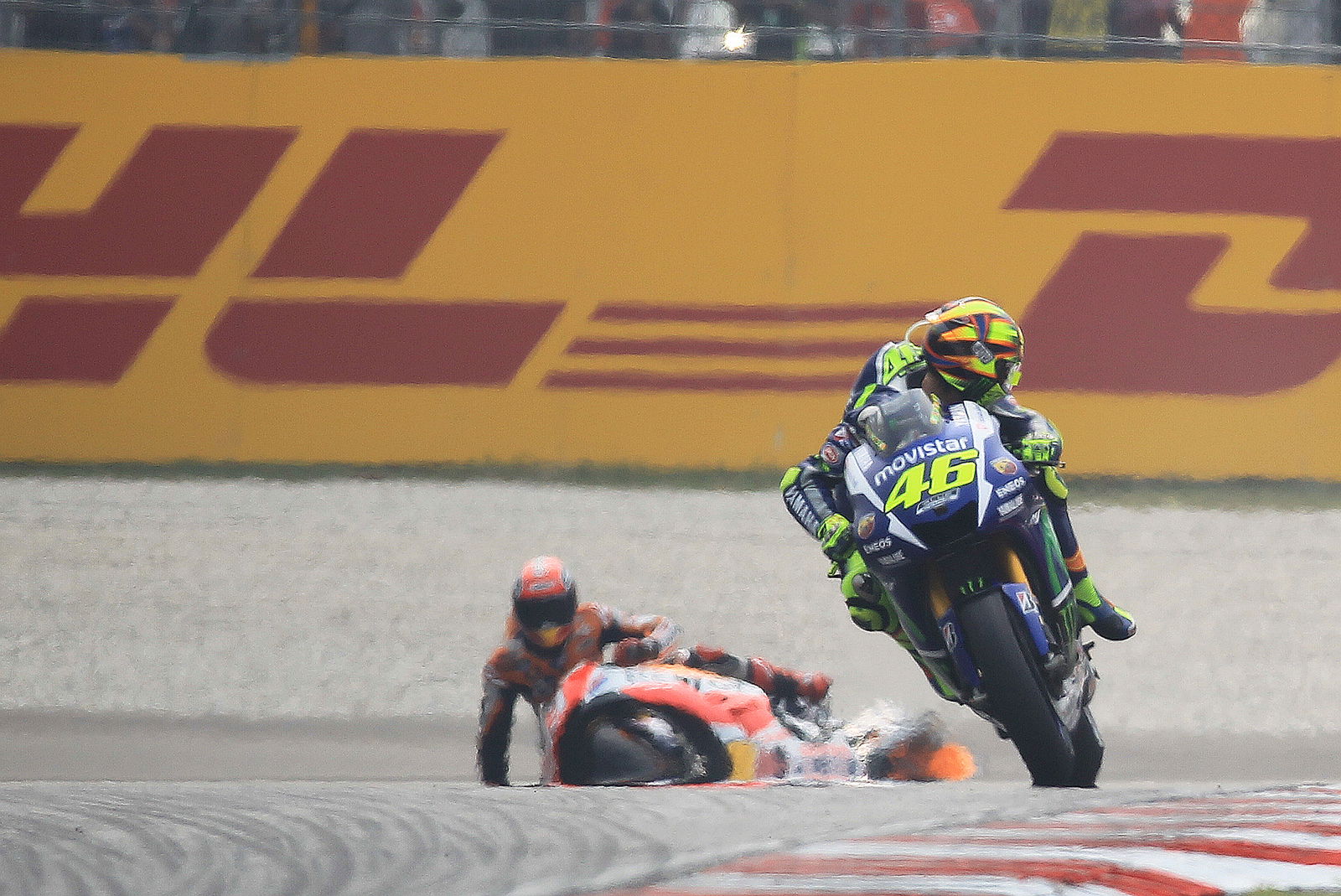
Sepang 2015: Rossi vs Marquez
An incident which forged a bitter rivalry.
While competitive tensions had been gradually building up before Sepang 2015, including two on-track clashes earlier in the season in Argentina and the Netherlands, the pair had enjoyed a mutual respect before their monumental fallout.
The full timeline kicked off at the previous race at Phillip Island where Rossi felt Marquez was playing with him and trying to help fellow Spaniard Jorge Lorenzo in the title fight – an accusation Marquez denied during the build-up to the Malaysian race a week later.
With the pair battling on track again at the next race at Sepang, featuring some aggressive moves by both riders, Rossi overtook Marquez at Turn 14 and pushed the Repsol Honda rider towards the outside of the circuit. The pair then collided, sending Marquez down and out of the race, with Rossi going on to finish third.
Following a lengthy and heated hearing with the MotoGP Race Stewards, Rossi was given three penalty points which added to the one he picked up in Misano for impeding Lorenzo it meant the Italian would start the 2015 title-decider in Valencia from last place on the grid.
Rossi took his appeal to the Court of Arbitration for Sport but the initial decision was upheld. Friction between all sides continued to boil over leading to the pre-event Valencia press conference being cancelled as FIM President Vito Ippolito and Dorna chief Carmelo Ezpeleta held a private meeting for all riders to remind them of their duty to the sport.
With Lorenzo winning in Valencia, as Rossi could only recover to fourth place, the Spaniard clinched the 2015 MotoGP world title by five points with Rossi continuing to blame Marquez for his involvement.
In an incident which quickly descended into ugly clashes and a trading of insults, MotoGP claimed the sporting spotlight for the right and wrong reasons while the collision between Rossi and Marquez at Sepang has become one of MotoGP’s the most memorable moments in history.
